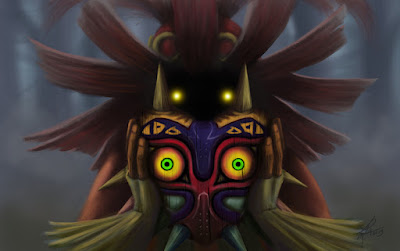The trailers and hype for this film were so cool back in the day! Billed as "The Russian Avengers", Guardians turned out to be more like a 1990s superhero film, in terms of the bad writing, poor special effects and nonsense plotting. More so that being a Russian version of The Avengers, Guardians is closer to Neo-Soviet Fant4stic. Seriously, there are four heroes in Guardians, a scientist who can transform his body (Arsus), a young guy who moves fast and takes risks (Khan), a man with internal torments and rock powers (Ler) and a blonde who can turn invisible (Kseniya). Having gotten their powers during the Cold War, the Guardians, as a side effect of their powers, do not age at the normal rate, which is made a point of, as if it will play a big role in the story, but it's just a thing that sits there for no reason. If I had to guess, the Guardians being part of a Soviet-era superhero programme (nammed "Patriot") is some kind of weird hand-waving to imply the current Russian government would never do horrible human experiments, which, from an outside perspective, is pretty eye-rolling.
Like more than a few things I've reviewed, if Guardians was just bad all the way through, then it wouldn't really be interesting; it's because there is enough going on in Guardians that I think it's worth a watch. For starters, Arsus, the Reed Richards of the team, turns into a giant bear. That's his power, "becomes bear", and later they give him a massive minigun, that's pretty cool right there. Ler is pretty forgettable, though his speech about having to watch his daughter and grandchildren get old and die before him is interesting enough, if not especially unique. Kseniya honestly just comes across as an excuse to get an attractive woman in tight clothing for most of the runtime, as her personal narrative of "amnesia" is pretty lazy and doesn't go anywhere. Khan at least has an interesting look and speedters always make for fun visuals, but aside from some mention of a dead brother, I didn't really get what he was "about" as a character; he was just there to be cool, which never works as well as the writers seem to want it to.
If there's one element of Guardians that I'm going to bring into my own games, it's the villain, Professor August, a rogue scientist with the power to control machines with his mind. Ok, so August actually has a general "super soldier" powers package, but has cybernetically altered himself with a device that lets him control machines, but the strength and agility doesn't come up all that often. August's plan involves stealing two huge towers to make a giant antenna that will enable him to control all the world's satellites and thereby the world. That's a solid comic book villain plan and I love how gonzo it is, made even better by the fact he pulls it off for most of the film and only loses at the eleventh hour. Also his minions, a "clone army" are soldiers in balaclavas with an array of lenses poking out, which is basic, but looks really cool. If you haven't seen Guardians, I'd say it's worth at least the one watch, even if it is pretty poor overall, as there's enough fun stuff happening to get through the film, but it's not some forgotten classic or cult darling in waiting.





















